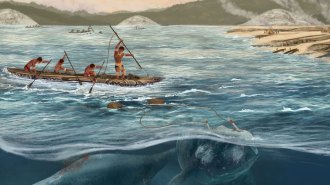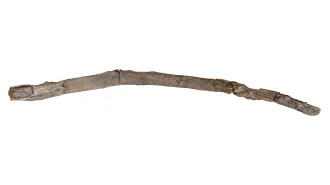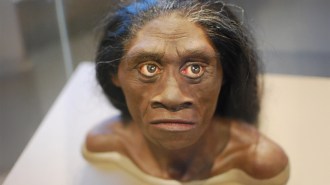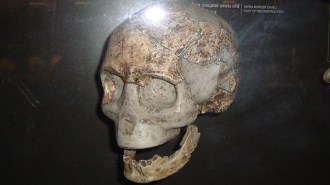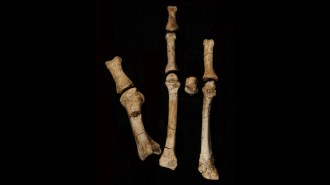Coasting to Asia in the Stone Age
Two new studies of DNA obtained from Southeast Asian islanders support the unconventional view that, roughly 70,000 years ago, our African ancestors migrated into Asia by traveling along that continent’s southern coast.
Anthropologists have traditionally held that the first modern people left Africa around that time by following the Nile River northward and then crossing the Sinai Peninsula into Asia. The new genetic evidence, published in the May 13 Science, fits with a scenario in which Stone Age Homo sapiens used boats or rafts to cross the Red Sea from eastern Africa and then headed east along the coast of the Indian Ocean.
Both investigations focused on island populations that have lived in isolation and harbor in their cells’ mitochondria DNA that can be dated to its presumably prehistoric roots.
A team led by Kumarasamy Thangaraj of the Center for Cellular and Molecular Biology in Hyderabad, India, analyzed the complete nucleotide sequence of mitochondrial DNA—which is inherited only maternally—from 10 people belonging to two hunter-gatherer groups on the Andaman Islands off Myanmar.
Each native group displayed distinctive mutations. The researchers estimate that these specific genetic profiles evolved around 65,000 years ago from a common mitochondrial DNA pattern that’s still found in people living on the Asian mainland.
In the second study, Vincent Macaulay of the University of Glasgow in Scotland and his colleagues identified two other unique mitochondrial-DNA configurations in 260 native tribal people of Malaysia. This pair of genetic types also diverged 65,000 years ago from that mainland mitochondrial DNA, according to Macaulay’s group.
These data support the southern-route-migration theory, Macaulay says. He estimates that it took just a few thousand years for a founding population of 600 Stone Age people to travel from what’s now India to southeastern Asia and then to Australia.

